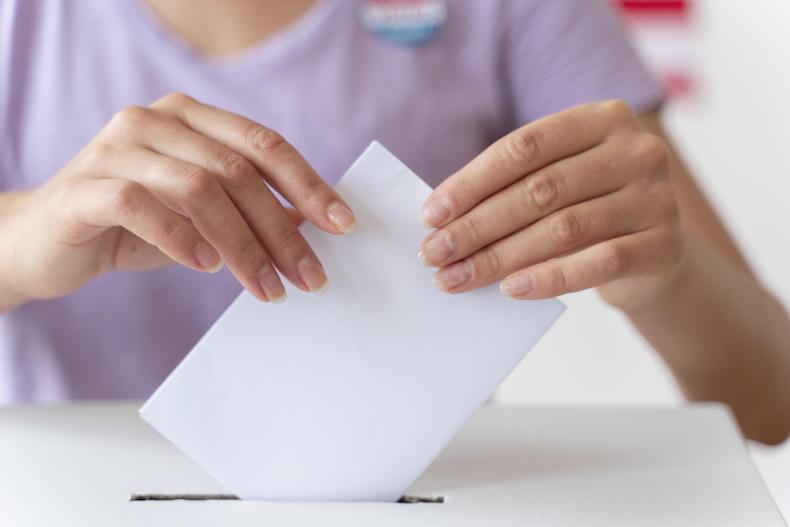All you need to know as the city heads to the polls on May 2
Voters will head to the polls in Bristol on Thursday, May 2, to decide which politicians should run the city. Seventy seats on Bristol City Council are up for grabs and the results will likely have major impacts on everybody living and working in the city.
The race is expected to be closely fought between Labour, who have been in power since 2016, and the Greens, who have risen in popularity in recent years and already have more councillors than Labour. The Conservatives and Liberal Democrats could also play a key role as kingmaker.
This election will see a switch in how the council is governed. Since 2012 Bristol has been led by a directly elected mayor, first the independent George Ferguson, and then Labour’s Marvin Rees. But in a city-wide referendum in 2022, Bristol chose to scrap the mayoral model and move to a committee system instead.
Critics of the mayoral model said too much power was invested in the hands of one politician, leading to some unpopular decisions. Supporters said having one strong leader enables more decisive action to take place, while a committee system could lead to excessive dithering.
The main difference is voters directly choose a mayor, who cannot be removed by councillors halfway through their term. Meanwhile under the committee system, councillors will decide among themselves who should become a council leader, and power is spread more evenly. This could lead to a more collaborative politics, but also more indecision and bickering.
Labour currently has 23 councillors in Bristol, after the recent resignation of one of their members from the party. Cllr Zoe Goodman quit in protest at Labour’s stance on the war in Gaza, and is now an independent. Under the mayoral model, the party has remained in charge as the mayor can decide who to appoint to his ruling cabinet, despite not being the largest party.
The Greens currently have 24 councillors in Bristol. Last year they won two by-elections, in Hotwells and Harbourside where they took the seat from the Liberal Democrats and became the largest party, and then in Bishopston and Ashley Down where they kept their seat. One of their former members, Cllr Jude English, was suspended from the party and is now an independent.
The Conservatives have 14 councillors, and face an uphill battle in this election due to the dire state of the national opinion polls since Liz Truss briefly became prime minister in September 2022. National popularity of political parties — or unpopularity — tends to affect local results, despite local councillors having little say or involvement in issues such as the mortgage crisis.
The Liberal Democrats have five councillors in just two wards in the south-east of Bristol, Hengrove and Whitchurch Park, and Brislington West. The party has suffered a long drop in popularity in Bristol since 2010 when they had over half the seats, but also entered into a coalition government with the Conservatives.
The Knowle Community Party has two councillors, unsurprisingly both in Knowle, who were in the Liberal Democrats until a recent spat. This will be their first electoral test, to see if voters will boot the new party out or support them. Knowle is expected to be closely fought by Labour, the Greens and the Liberal Democrats, particularly due to the plans to redevelop Broadwalk Shopping Centre.
To win a majority in the council, one party would have to win at least 36 seats — a big leap for the two largest parties Labour and the Greens. One likely outcome would be a coalition, with one of the smaller parties such as the Conservatives making up the numbers. Based on the current number of councillors, Labour and the Tories would together have 37 seats, for example.
This means the final outcome might not become immediately clear once all the votes are tallied up. Last year in South Gloucestershire, talks lasted two weeks after election day, before the Liberal Democrats and Labour announced they had finally agreed to form a coalition.
While Labour and the Conservatives would prove unlikely team mates, both parties have worked together in Bristol to pass the last two council budgets. Another option would see the Liberal Democrats help either Labour or the Greens form a coalition, with more in common politically.
Labour and the Greens have already published their manifestos, but the other parties haven’t yet at the time of writing. Both manifestos focus on getting much more affordable housing built, upgrading the city’s bus services and asking the government for powers to control rents.
One key difference is the Greens are calling for a workplace parking levy, which would fund improvements to public transport, while Labour are still promising a mass transit system. The Conservatives have promised an “end to the war on motorists”, after recent increases in fines for drivers and new parking fees.
Photo ID is now needed at polling stations following the government’s introduction of a controversial new law to clamp down on electoral fraud. Accepted forms of ID include a passport, driving licence, or older person’s bus pass.
The deadline to register to vote in the Bristol local elections is midnight on Tuesday, April 16. Anyone who is not already registered can apply in five minutes online by visiting: www.gov.uk/register-to-vote
By: Alex Seabrook, Local Democracy Reporter


